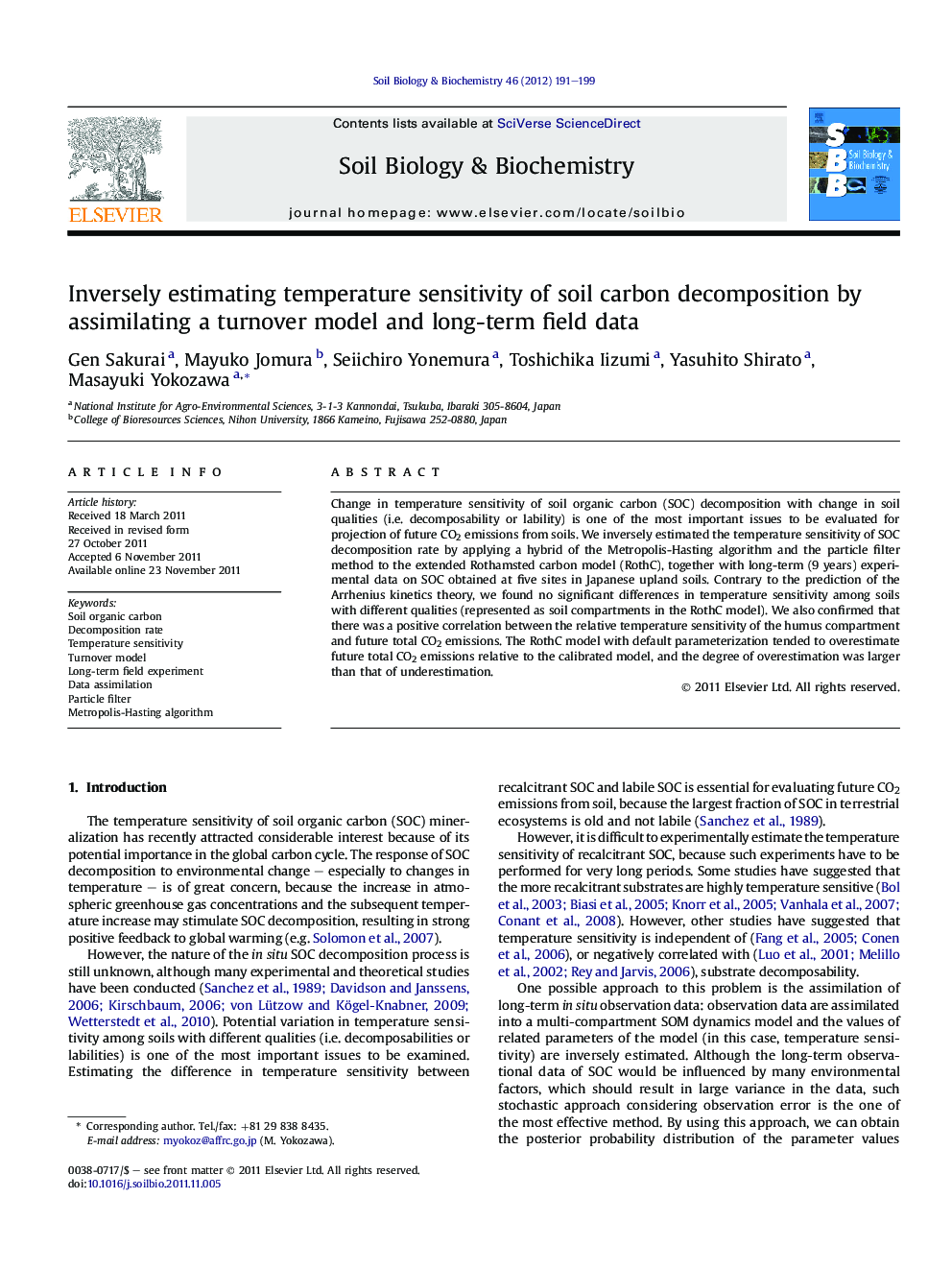| Article ID | Journal | Published Year | Pages | File Type |
|---|---|---|---|---|
| 2025022 | Soil Biology and Biochemistry | 2012 | 9 Pages |
Change in temperature sensitivity of soil organic carbon (SOC) decomposition with change in soil qualities (i.e. decomposability or lability) is one of the most important issues to be evaluated for projection of future CO2 emissions from soils. We inversely estimated the temperature sensitivity of SOC decomposition rate by applying a hybrid of the Metropolis-Hasting algorithm and the particle filter method to the extended Rothamsted carbon model (RothC), together with long-term (9 years) experimental data on SOC obtained at five sites in Japanese upland soils. Contrary to the prediction of the Arrhenius kinetics theory, we found no significant differences in temperature sensitivity among soils with different qualities (represented as soil compartments in the RothC model). We also confirmed that there was a positive correlation between the relative temperature sensitivity of the humus compartment and future total CO2 emissions. The RothC model with default parameterization tended to overestimate future total CO2 emissions relative to the calibrated model, and the degree of overestimation was larger than that of underestimation.
► We examine the decomposition rate of SOC using data assimilation method. ► We evaluate the temperature sensitivity and the substrate decomposability. ► No significant correlations between them are found. ► The relative temperature sensitivity of humus compartment correlates CO2 emissions. ► The original RothC tends to overestimate the amount of CO2 emissions.
